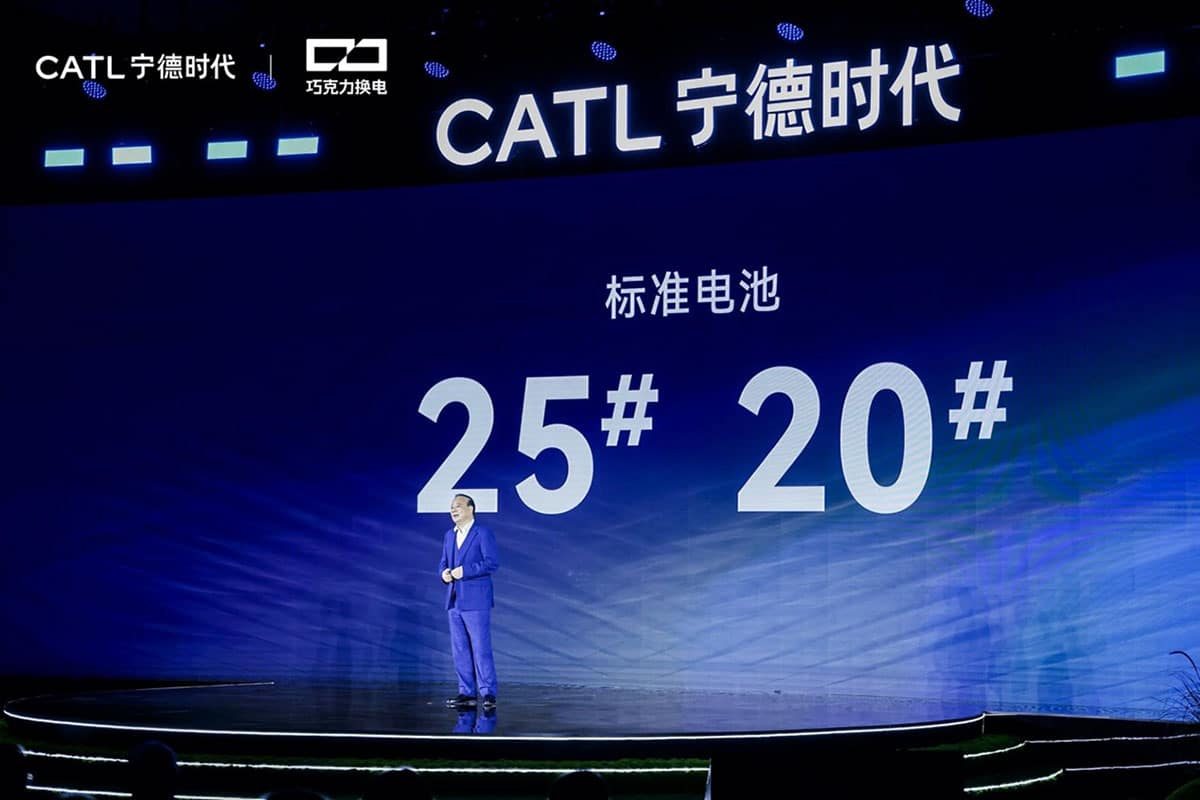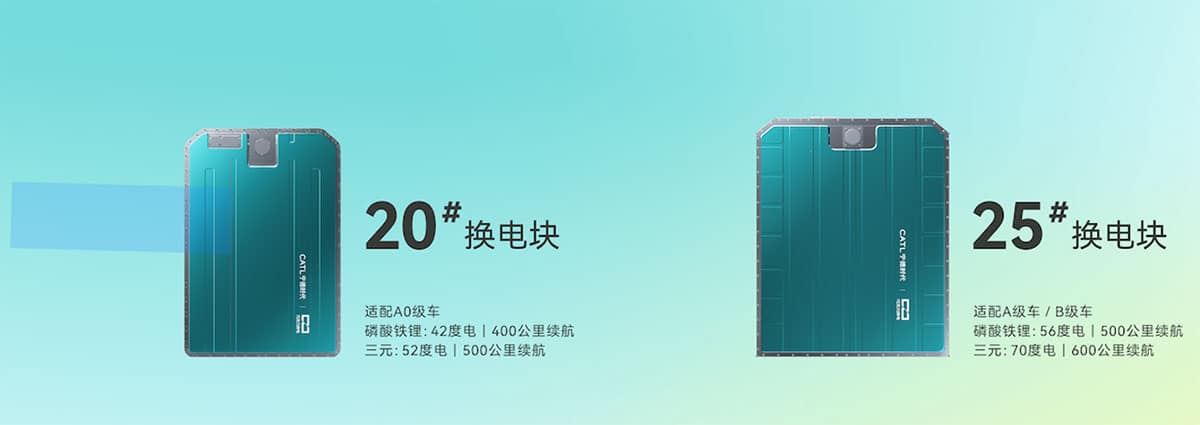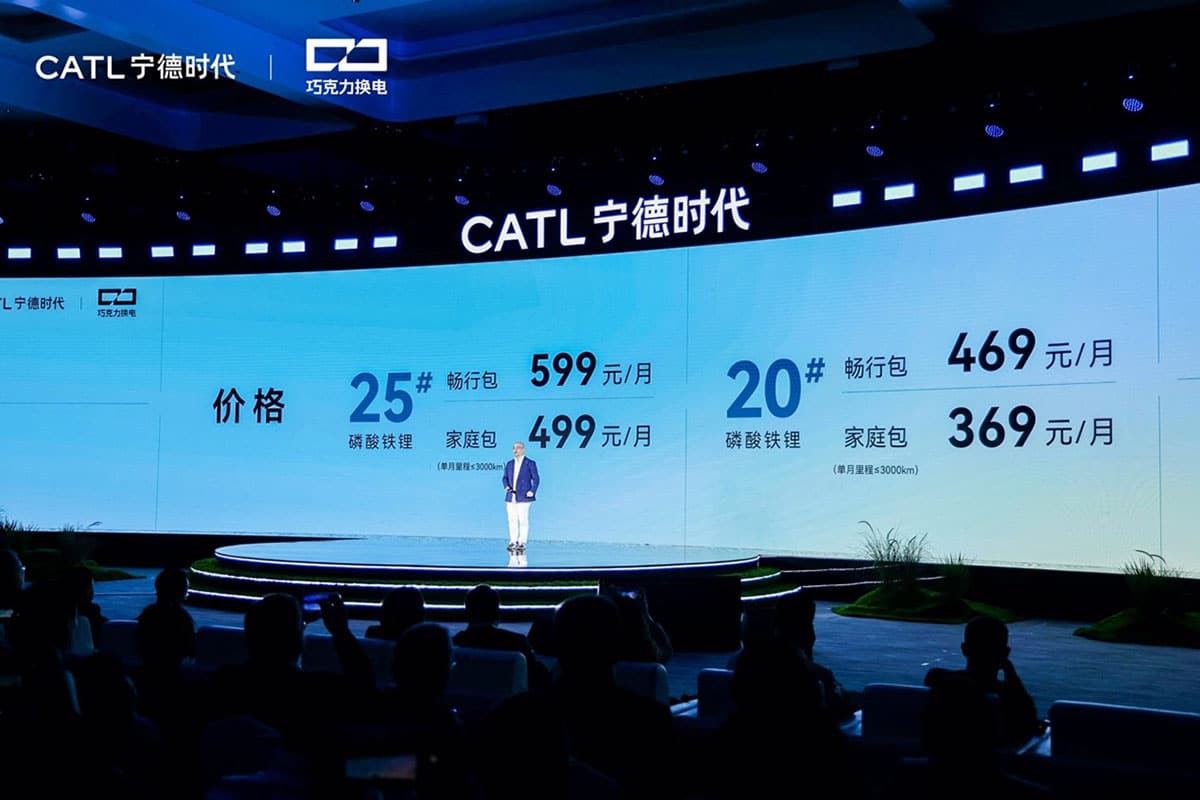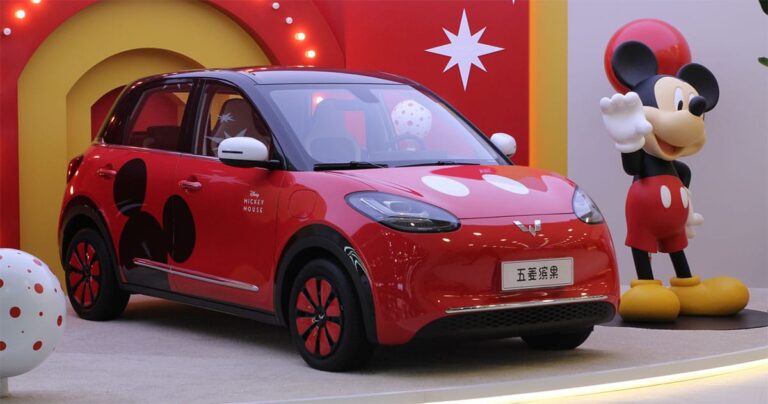CATL has unveiled two standardized Choco-SEB battery packs and plans to launch 10 models using the packs with partners, one for each of the following quarters.
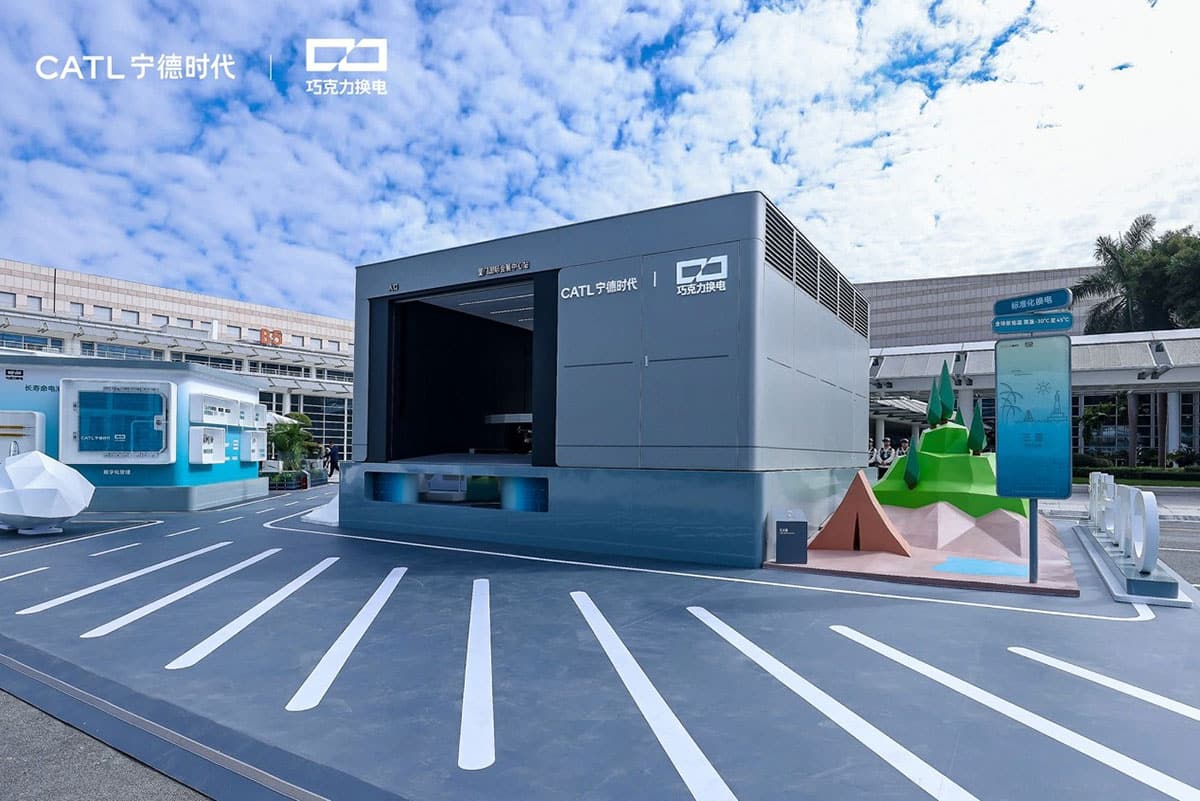
Contemporary Amperex Technology Co Ltd (CATL, SHE: 300750) has given a major update to its battery swap business, which was launched about 3 years ago, in an attempt to standardize swapable electric vehicle (EV) batteries.
The Chinese power battery giant announced the launch of standardized battery packs for passenger cars and unveiled aggressive infrastructure plans at a Choco-SEB (swapping electric block) eco-conference today in Xiamen, Fujian province, where it is headquartered.
The company launched its battery swap brand EVOGO -- operated by subsidiary Contemporary Amperex Energy Service Technology (CAES) -- on January 18, 2022, officially entering the battery swap space. Previously, Nio (NYSE: NIO) was a major player in the sector.
In CATL's previous vision, swapable battery packs were supposed to be small and a vehicle could use one or more packs depending on range requirements.
At today's event, the company made a significant change to that concept, turning swapable battery packs into a single pack that a conventional vehicle would use.
It introduced two new standardized Choco-SEB battery packs today, naming them #20 and #25, just as gasoline is available in China as #92, #95, and #98.
CATL is continuing to push the standardization of battery swaps, with the core being the standardization of battery sizes, said Robin Zeng, founder, chairman, and CEO of the battery maker.
He believes that by 2030, battery swap, charging at home, and charging at public charging stations will each fulfill one-third of EV owners' energy replenishment needs.
CATL's #20 Choco-SEB pack is for A0-class EVs, while the #25 pack is for larger A- and B-class vehicles, and they both have lithium iron phosphate (LFP) and lithium ternary options.
For the #20 pack, the LFP chemistry-based pack has a capacity of 42 kWh and provides a range of about 400 kilometers. The pack based on lithium nickel cobalt ternary chemistry has a 52-kWh capacity and provides a range of 500 kilometers.
For the #25 battery pack, the pack based on the LFP chemistry has a capacity of 56 kWh and provides a range of 500 kilometers. The pack based on ternary chemistry has a capacity of 70 kWh and can provide a range of 600 kilometers.
CATL's battery swap service adopts a BaaS (battery as a service) strategy similar to Nio's, where the customer only needs to buy the vehicle body and the battery needs to be rented. The difference is that Nio additionally allows customers to purchase vehicles that include a battery pack.
In terms of pricing, there are two options for the LFP chemistry-based #20 battery packs: RMB 369 ($51) per month for a single month's mileage of 3,000 kilometers or less, and RMB 469 per month for unlimited mileage.
For the #25 pack based on LFP chemistry, the price is RMB 499 per month for a monthly mileage of 3,000 kilometers or less, and RMB 599 per month for unlimited mileage.
CATL did not announce the monthly price for the ternary chemistry-based battery packs today.
Along with these details, CATL announced that it has signed subscription orders for 107,500 Choco-SEB batteries with more than 30 companies, and that all its new battery technologies will be used in such packs in the future.
The battery maker is continuing to push the coverage of the battery swap alliance it leads, saying it has entered into partnerships with a number of car companies, including Changan Automobile and China FAW Group, to jointly launch 10 models using Choco-SEB battery packs.
In each of the following quarters, new models supporting Choco-SEB battery packs will be launched, CATL said.
On November 22, Changan, CATL and CAES held a signing ceremony for the battery swap program and showcased the Oshan 520 electric sedan, a sub-brand of Oshan that supports battery swap.
On December 14, China FAW Group's Hongqi brand announced that it will co-develop models using Choco-SEB technology with CATL.
CATL also unveiled ambitious infrastructure plans, saying its battery swap stations will reach 1,000 next year, with a medium-term plan to build 10,000 stations to support the business.
The first 1,000 battery swap stations will be built by CAES, while the 1,001st to 10,000th battery swap stations will be built by CAES and partners, according to the company.
CATL's long-term goal is to reach 30,000 battery swap stations, with the 20,000th to 3rd being built by the whole society, it said.
($1 = RMB 7.2863)
